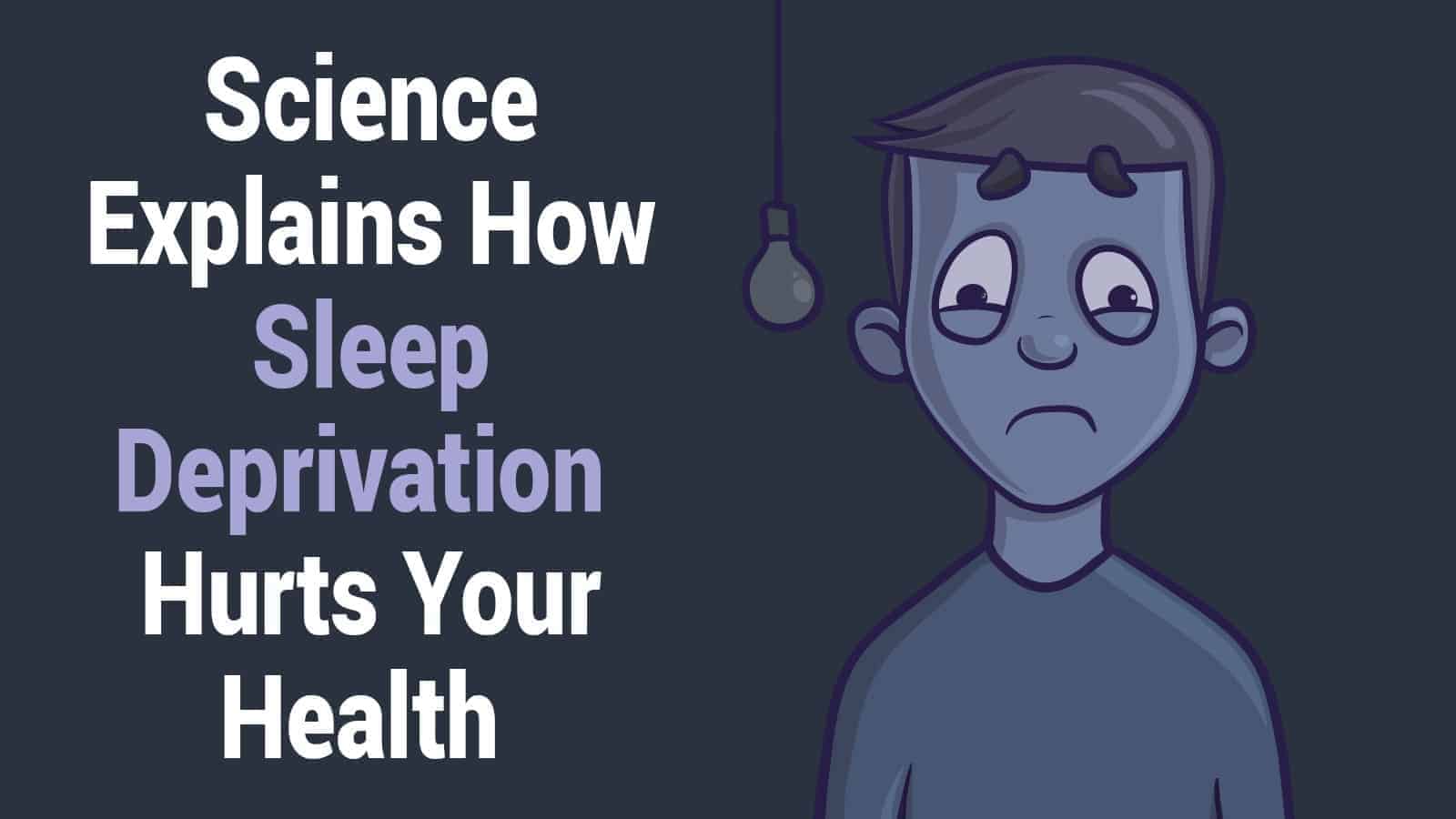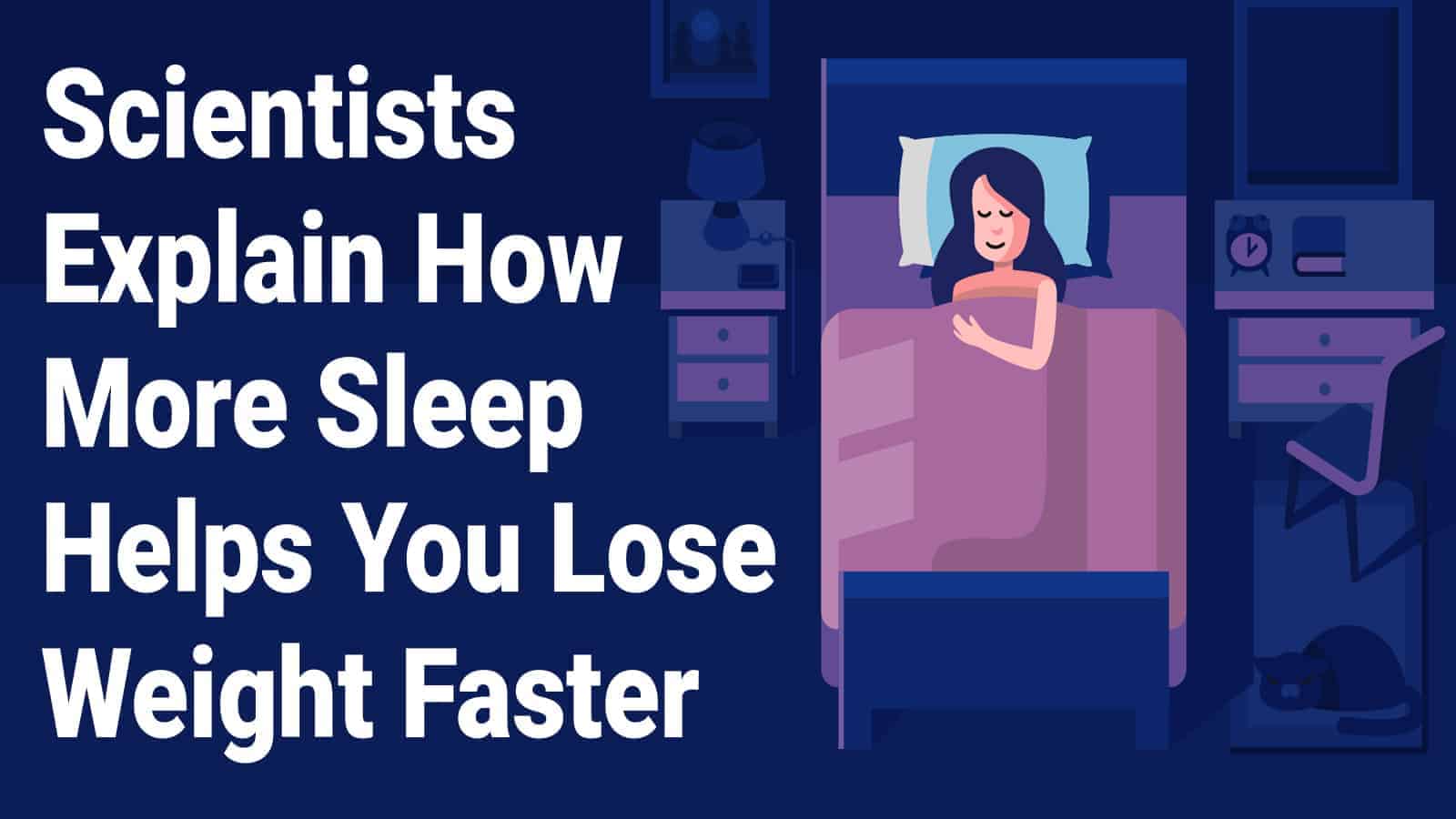Do you know that, ideally, you need seven to nine hours of sleep every night? But a report from the Center for Disease Control (CDC) cited that at least a third of adults in the U.S. hardly get seven hours of sleep each night. In fact, many respondents of that health survey described their sleep quality as either fair or poor. It’s shedding light on a growing problem that’s known as sleep deprivation.
Everyone has experienced sleep deprivation. We have all had irritable days, short fuses, and snappy episodes where we felt less positive because we did not get a good night’s rest. But the consequences of a lack of sleep go deeper than becoming short-tempered and lashing out at people. Here are other ways sleep deprivation might hurt your health, according to science.
Science Reveals 7 Ways How Sleep Deprivation Hurts Your Health
“The first step to dealing with sleep deprivation is reconstructing priorities to allow for adequate sleep.” – Peter Johnsen
1. You become dehydrated
A new study in the Sleep journal revealed that sleep deprivation may lead to dehydration.
- Apparently, short hours of sleep affect a crucial brain function.
- When you’re getting your rest in bed every night, your brain releases a hormone called vasopressin that regulates the body’s hydration.
- If you don’t sleep the right number of hours, the release of this hormone becomes disrupted.
Experts looked into the data of over 20,000 adults from three different sleep studies for this research. They learned that those who had under six hours of sleep had highly concentrated urine in the morning compared to those who had eight hours of sleep. Further probing showed that sleep-deprived individuals were 16 to 59 percent more dehydrated when they woke up.
The findings might help explain why people who lack sleep are more prone to develop health issues like a bad heart or kidney function, insulin sensitivity, and improper metabolism. The experts suggested that if you wake up feeling tired because you weren’t able to sleep enough or sleep well, drinking a glass of water might alleviate your condition.
2. Your body becomes more intolerant of pain
Not getting enough sleep might make you more sensitive to body aches and inflammation, according to the journal Pain. Sleep deprivation impacts proteins called cytokines that may trigger the appearance of inflammatory cells in the body.
- In this research, 10,400 participants enlisted for a pain sensitivity test where they were asked to dip their hands in ice cold water.
- Interestingly, 42 percent of the participants, who suffered from insomnia, took their hands out earlier than the 31 percent who did not have any sleep issues.
- This led experts to conclude that pain sensitivity is more intense when people don’t get enough sleep.
However, the relationship between sleep and pain is much more complicated. It’s not so simple to try and get a good night’s sleep to increase your pain tolerance. For people who suffer from arthritis or fibromyalgia, for example, the body’s pain makes it harder to stay asleep. So, they likely need to take medications, change their lifestyle or diet, or get into therapy to improve their sleep quality.
3. You gain weight and raise your risks for weight-related diseases
Do you follow a strict diet and workout every day yet you’re still gaining weight? Have you looked into how much quality sleep you get? Those extra pounds you’re packing could be tied to sleep deprivation. A study in the Endocrine Society pointed out that losing just 30 minutes of your body’s necessary sleep hours can contribute to weight gain more than you realize.
- Your body’s metabolism will stop functioning well if you lack sleep because two hormones that work through the night in your body become imbalanced.
- The ghrelin hormone triggers your appetite, while the leptin hormone tells your body when it is full or satiated.
- Your body’s leptin content drops when you don’t sleep enough. As a result, you start craving more food, especially foods with high-fat content.
- Your brain takes cues from these hormones and thinks that the reason you’re lacking energy and feeling tired is due to lack of food.
Do you ever notice how you tend to eat more when you’ve had just three or four hours of sleep? If this happens regularly, you’re putting your body at a greater risk for developing weight-related diseases like obesity, insulin resistance, or diabetes. You’re overeating when what you really need is to catch up on sleep.
4. You also raise your risk for a heart attack or stroke
Blood pressure usually levels off at night for many people. When the body is resting and recuperating, the heart doesn’t have to work or pump harder. As a result, blood pressure dips. But when you have short sleep hours or don’t get a positive sleep cycle, you deprive your body of this biological process. As a result, you can develop hypertension, which is also known as high blood pressure.
Hypertension can lead to a heart attack or stroke. High blood pressure may also induce heart failure as your cardiovascular muscles will need to increase their workload, as per the American Heart Association.
- Now, it’s normal for your blood pressure and heart rate to fluctuate every day because of your different activities.
- When you are deprived of sleep, however, these numbers stay elevated.
- You’re not just stressing your heart with high blood pressure. Your blood vessels in the brain could clot or rupture, which is what occurs in the case of stroke.
5. You lower your immune system and make your body a target for virus and bacteria
As with the heart, your immune system recharges itself whenever you sleep well. Without enough sleep, you take away your body’s ability to fight germs, viruses, and bacteria. Additionally, your recovery may take longer if you develop a cold or flu.
There’s a complex physiology to the immune system, which is made up of different proteins and cells. For this reason, this system’s links to sleep deprivation might not be straightforward. But it’s fair to say that if you keep pulling all-nighters at work, you could find yourself being the first one to catch someone’s cold or fever during flu season or a virus scare.
A study in the European Journal of Physiology figured out that a person who doesn’t get enough sleep has lowered T-cells. This is a very important protein. The T-cells kill germs, virus, and bacteria, including cancerous cells that attack the body.
You might have heard your grandmother telling you as a child that you could get easily get sick if you don’t sleep well. Now you know that there’s an actual science that backs up this old wives’ tale.
6. You lose your desire to be intimate with your partner
Experts said in the Journal of Sexual Medicine that a woman who gains an extra hour of sleep increases her drive for intimacy by 14 percent. However, a woman who is chronically sleep deprived could have little satisfaction and arousal during her private and intimate time with her partner. This means that sleep deprivation can also have an unfavorable impact on your desire to copulate.
However, this is not just a problem for women. Another study from experts at the University of Chicago learned that a man’s testosterone level drops when he sleeps under four hours night after night compared to a man who gets eight solid sleep hours. Testosterone is what drives a man’s natural needs and manly energies.
- Additionally, if you’re an adult without healthy action in the bedroom, you’ll risk feeling more strain and stress on your body.
- Physical intimacy helps release endorphins that can improve your mood so you’ll feel more positive.
- A private time in the bedroom also helps lower your blood pressure, as per a study on Biological Psychology.
- So, get enough sleep in order to get in the mood and improve your health.
7. You diminish your ability to cultivate positive thinking and gratitude
Because sleep deprivation exhausts and drains your body and mind, you lose perspective and focus. You start getting more frustrated about how you feel and how you function. There have been countless studies from decades ago that links sleep deprivation to mood disorders, depression, and anxiety.
- When you are sleep deprived, you might find personal connections a lot less satisfying. Your relationships with the people you value start to suffer.
- You also lose the sensibility to be grateful for the people who care for you, according to experts at the University of California, Berkeley.
- Worse, short sleep duration has been proven to affect your thoughts and feelings. This information comes from the Journal of Behavior Therapy and Experimental Psychiatry.
- You could get trapped in a worry cycle of negativity, which isn’t a healthy way to live.
Final Thoughts On How Sleep Deprivation Hurts Your Health
Making a conscious effort to get a decent night sleep is the first step to fighting sleep deprivation. Also, make a commitment to change your sleep habits and routines for change to really work. Follow a consistent sleep schedule by going to bed and waking up at the same times every single day. It’s important to train yourself so that your body and brain can take the cues and fall in sync.
Sleeping extra during the weekends can’t count as catching on sleep or repaying your sleep debt. In fact, sleep experts say that this will be counterproductive to your goal of maintaining a steady sleep schedule.
As much as possible, resist taking sedatives to help you get sleep. These pills might cause more harm to your mind and body than improve your sleep patterns. If you’re still feeling tired while getting used to your new routine, go ahead and take a power nap. Make sure it’s between 15 to 20 minutes, in the middle of the day. In fact, some companies encourage this activity to boost their workers’ physical and mental health.
It will take time to adjust to a new sleep lifestyle, especially if you have been suffering from insomnia. There is no shortcut but once you adopt a good sleep schedule, the payoffs will positively affect your health.














 Community
Community

